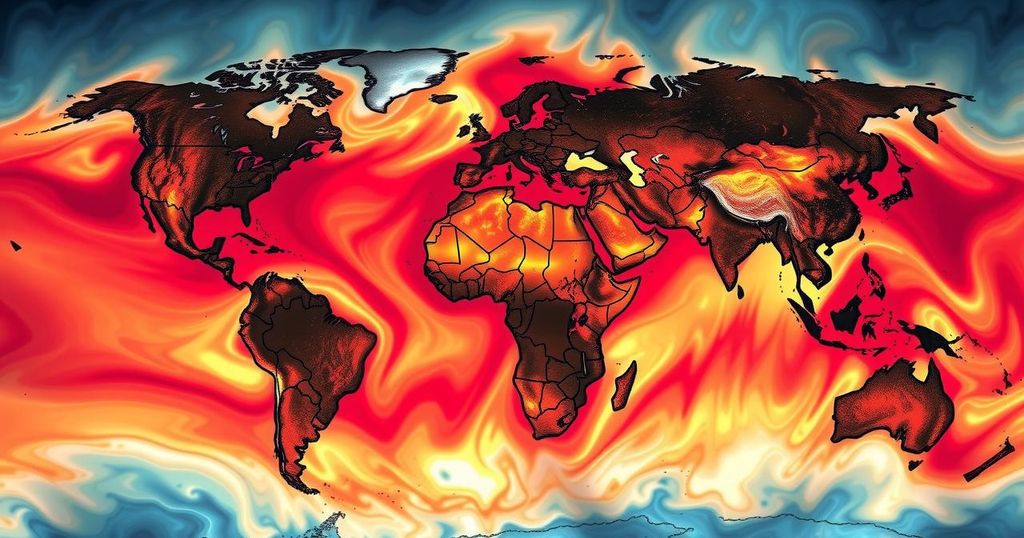2024: A Pivotal Year Marking Global Temperatures Over 1.5 Degrees Celsius

In 2024, global temperatures exceeded pre-industrial levels by over 1.5 degrees Celsius, marking the hottest year on record since 1850. Severe weather events became more frequent, with high temperatures recorded globally, particularly impacting Europe. Despite knowledge of the impending climate crisis, greenhouse gas levels continued to rise, calling for urgent action to mitigate climate impacts.
In a significant milestone for climate change awareness, the year 2024 marked the first instance in which average global temperatures exceeded pre-industrial levels by over 1.5 degrees Celsius. According to the Copernicus Climate Change Service (C3S), this alarming trend extends beyond averages, highlighting unprecedented temperature increases across numerous continents, particularly in Europe. Every month from January to June recorded the highest temperatures on record, with a peak daily global average temperature of 17.16 degrees Celsius noted on July 22, 2024.
The Copernicus report underscores that while this temperature spike does not breach the Paris Agreement, which aims to limit global warming to below 2 degrees Celsius, it serves as a stark warning of the increasingly dire trajectory of climate change. The accumulation of atmospheric water vapor has contributed to severe weather events globally, resulting in devastating storms, floods, droughts, and wildfires. In 2024, European temperatures averaged 1.47 degrees higher than the 1991-2020 baseline, with ocean temperatures and Antarctic sea ice levels also reaching historic extremes.
As global heating challenges intensify, experts like Carlo Buontempo and Samantha Burgess emphasize the urgent need for collective action to mitigate the impacts of climate change. The report highlights that despite recent calls for emission reductions, greenhouse gas concentrations remain alarmingly high, exacerbating extreme weather occurrences.
The phenomenon of climate change has been a growing concern for the global community, with scientific consensus around its causes and impacts. The Paris Agreement represents international efforts to combat climate change by limiting global temperature rise. Recent data indicate that 2024 has produced record-breaking temperatures that reflect the urgency for effective emissions reductions and climate adaptability strategies. The study of atmospheric conditions reveals a direct correlation between human activities, such as greenhouse gas emissions, and rising global temperatures, which have facilitated extreme weather events.
The trends observed in 2024 signal a critical moment for global climate action. With the average global temperature surpassing the critical threshold of 1.5 degrees Celsius, immediate and substantial efforts are necessary to curb emissions and avert further damage to the planet. Experts advocate for decisive measures based on scientific evidence, underscoring that the path forward remains within humanity’s control, contingent upon collective commitment to sustainable practices.
Original Source: www.thejournal.ie







